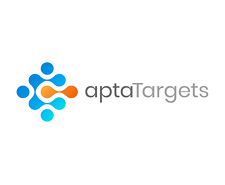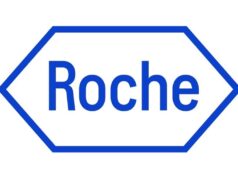 As per a press release from AptaTargets, JAMA Neurology has published positive results from APRIL—a Phase 1b/2a clinical trial evaluating the safety and efficacy of the neuroprotective drug ApTOLL in combination with endovascular therapy (EVT) in patients with acute ischaemic stroke.
As per a press release from AptaTargets, JAMA Neurology has published positive results from APRIL—a Phase 1b/2a clinical trial evaluating the safety and efficacy of the neuroprotective drug ApTOLL in combination with endovascular therapy (EVT) in patients with acute ischaemic stroke.
The results from the study have proven to be clinically relevant, the release notes, as the administration of 0.2mg/kg of ApTOLL within six hours after acute ischaemic stroke—in combination with EVT—was safe and well-tolerated, as well as being associated with a reduction in mortality from 18% to 5% along with a reduction in 90-day functional disability compared to a placebo.
“The recently published data in JAMA Neurology and presented in February in the main opening session of the International Stroke Conference [ISC; 8–10 February, Dallas, USA] as innovative neuroprotectant agent with promising potential to improve the treatment of ischaemic stroke and other CNS [central nervous system] disorders,” said Marc Ribó (Vall d’Hebron University Hospital, Barcelona, Spain), chief medical officer of AptaTargets and one of the lead authors of the article.
APRIL is a double-blind, randomised, multicentre, placebo-controlled, Phase 1b/2a clinical trial that started in 2020, and has been conducted in 14 comprehensive stroke centres across Spain and France. In total, the study included 151 patients: 32 in Phase 1b and 119 in Phase 2a. The study population were men and non-pregnant women between 18 and 90 years old with an incapacitating stroke at the time of randomisation. Patients received ApTOLL or placebo intravenously prior to undergoing EVT.
The total population analysed consisted of 139 patients, of whom 42 received 0.05mg/kg of ApTOLL; 42 received 0.02mg/kg of ApTOLL; and 55 received placebo. The primary endpoint was safety—as determined by death, symptomatic intracranial haemorrhage, malignant stroke and recurrent stroke. The secondary endpoints, concerning efficacy, included the mean final infarct volume measured at 72 hours; stroke symptom severity assessed via the National Institutes of Health stroke scale (NIHSS) at 72 hours; and disability as per the modified Rankin scale (mRS) at 90 days.
The AptaTargets press release notes that, although reperfusion treatments have been shown to consistently achieve arterial recanalisation in 85–90% of cases in recent years, more than 50% of patients treated develop a moderate-to-severe disability. In this context, “there is a clear medical need to develop new drugs with a neuroprotective effect to improve the results of stroke in parallel with reperfusion treatments”, the release also states.
“ApTOLL is the first neuroprotective drug that achieves positive efficacy results in clinical trials on ischaemic stroke, showing a strong anti-inflammatory action by the inhibition of TLR4 receptor, and significantly reducing mortality and long-term disability,” added Macarena Hernández Jiménez, chief scientific officer of AptaTargets and first author of the article.
“The fact that one of the most prestigious scientific journals in this field is publishing these results highlights the importance of ApTOLL,” commented David Segarra, CEO and co-founder of AptaTargets. “The APRIL II study is currently being planned and expected to start by Q1 2024.”
The release further details that ApTOLL has obtained a priority medicines (PRIME) designation from the European Medicines Agency (EMA).









